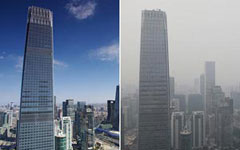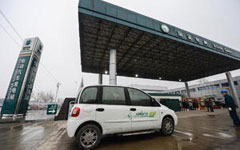Fewer sandstorms give hope for cleaner air
By Harvey Dzodin (China Daily) Updated: 2014-05-23 07:09Using conventional technology, China, like other affected countries, plants grasses and trees to anchor the sand and keep it in place. This helps, but the winds can still carry grains of sand aloft. China has now gone to the next level and pioneered the use of cyanobacteria which can create a biocrust which is thick enough to help promote topsoil and prevent erosion, even in the harsh desert environment.
|
 |
 |
Most youngsters today think of London fog as an upscale fashion brand. Yet after World War II the English capital was plagued by extreme pollution, even worse than we experience on most bad days, much of it, as here, from burning dirty coal. Today, however, London is a breath of fresh air albeit after many years, numerous laws and regulations, and billions of pounds sterling in anti-pollution equipment later.
Yet thinking back to the 2008 Olympics when Beijing and surrounding polluting factories and power generators were stopped, blue sky days returned. So we know that change is possible.
My personal hope is that based on the experience of China's conquest of sandstorms, in part by the use of novel technologies, the air pollution will be controlled in the not too distant future.
The author is a senior adviser to Tsinghua University and former director and vice-president of ABC Television in New York.
- China 'incredibly innovative' in many areas: Apple CEO
- City official: Guangzhou further committed to opening-up
- Jack Ma: Globalization backed by technology will cut inequality
- HNA confirms interest in ASEAN's infrastructure investment
- Comments on Xi's letter to 2017 Fortune Global Forum
- China to create more opportunities for the world: Xi
- US tax cuts impact on China two-sided: economists
- Chinese enterprises job fair to be held in Sri Lanka

















